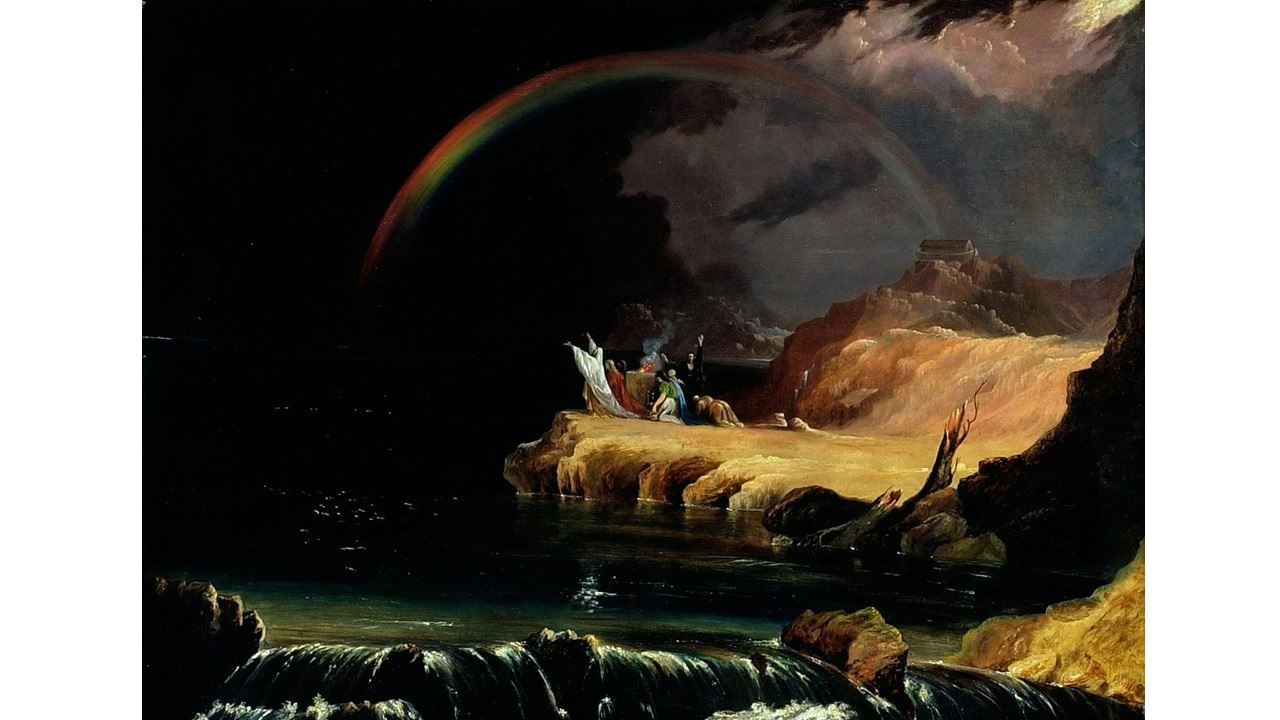.
The Deluge
From Heaven came the rain;
On Earth the waters swelled
To wash away each stain
The eyes of God beheld.
Each structure man had made
Of metal, wood, and stone
Cut down by Water’s blade,
Save for the Ark alone.
Till sense of time had ceased,
We lingered in the dark.
Then on a rock released,
We crept out of the Ark.
No mouth, no tongue could speak
On seeing such rebirth;
Beyond this mountain peak,
No life dwelt on the Earth.
I pray the God we serve,
Who led us to this place,
Forever will preserve
A remnant of our race.
.
.
William Harrison is a professional photographer from Oklahoma, USA. He is currently based in the area around the city of Lawton, where he photographs the many endangered species of animals there while doing general freelance work on the side.















William, your poem on the “Deluge” is a refreshing take on the ark and rebirth with a prayer to save the remnant as applied to the modern world who have faith and regenerative powers provided by God.
I like the simplicity of this poem. It has a timeless quality. What’s interesting is that so many cultures beyond the Judeo-Christian also refer to a flood that overwhelmed the Earth.
Thank you! Yes, it’s fascinating how many different stories of a global flood there are throughout the world. You even have things like the ancient Persian myth of a global ice storm that wiped out everything on Earth, except for a small group of people and animals who had taken refuge in an underground cavern.
Someone has to say it: As a Christian, I think the reason every culture has a story of a global flood in the distant past is because (you guessed it) there was a global flood within human history.
https://answersingenesis.org/the-flood/flood-legends/flood-legends/
Yes, there have been plenty of floods in human history, some of them in my lifetime. But as for a flood that inundated the entire world, where is the geological evidence?
Here’s a two-hour introductory video about young-Earth creation that will answer your questions a lot better than I can:
https://youtu.be/LaHcHwPj4sw
The speaker has six more videos if you’re interested.
I’ll second Cheryl on the timeless simplicity. One I’ll definitely pass around and conceivably memorize!
A poem to make you think, William, especially in these trying times of a deluge of melting ice caps and glaciers and wildlife being put under pressure by both climatic events and humankind’s negligence.
Thanks for the read.
William, this is a concise and logical explanation of the Flood. In five well written trimeter quatrains, you sketch the story, explain its scope, give the reason for the event, explain the providential preservation of human beings, tell how the Deluge resembles a new creation, and pray for continuing preservation. This is an admirable accomplishment for 20 short lines.
To make my little contribution on the subject of geological evidence for global inundation, I would like to recommend the work of Walt Brown, a mechanical engineer and former professor of physics at the US Air Force Academy, whose writings from the 1980s cannot be ignored. His book “In the Beginning” was well worth the six months it took me to read it (I went through every technical detail in the last third of it, which is intended especially for persons with scientific education). The book (now in its 8th edition) is available to read online. Brown also has summary videos on YouTube.
Brown differs from other creation scientists in important ways. (1) He presents a complete theory of geological events and their consequences. (2) From his first publication, he made predictions (38 of them) regarding future discoveries that would confirm or disprove his theory. At least seven predictions have been verified as fact, and as far as I know, only one has proven questionable and in need of revision. (3) Brown is a Christian who pays attention to the Biblical account of the Flood, but he wishes to discuss and debate his theory on scientific grounds only. He will not take part in any debate that considers religion, as he is no theologian.